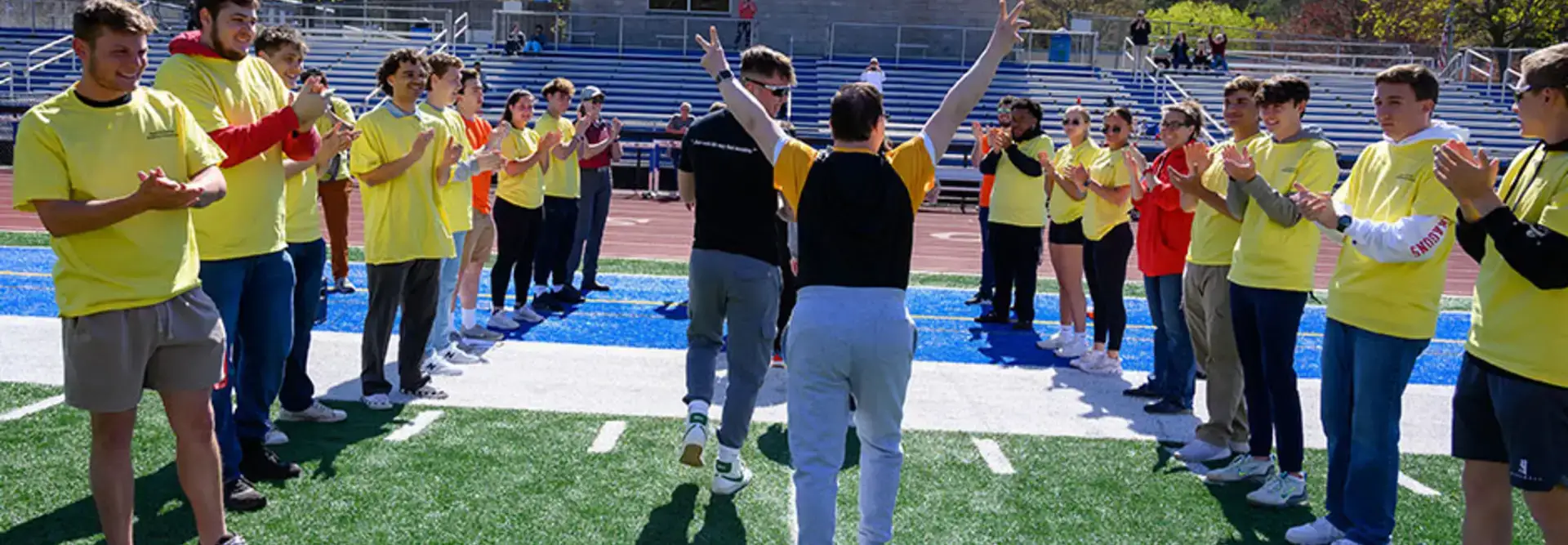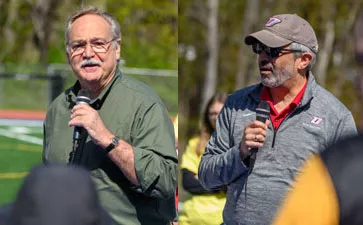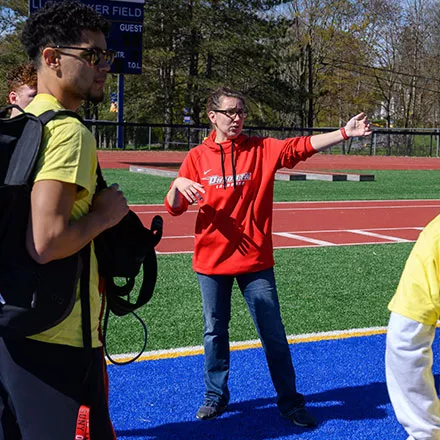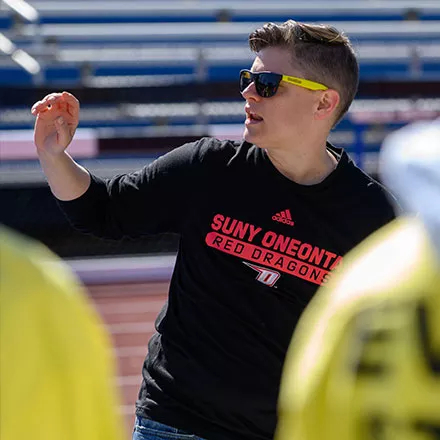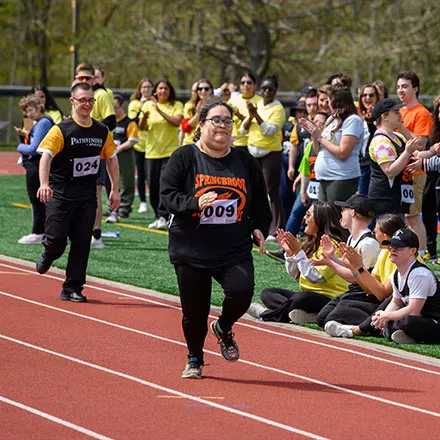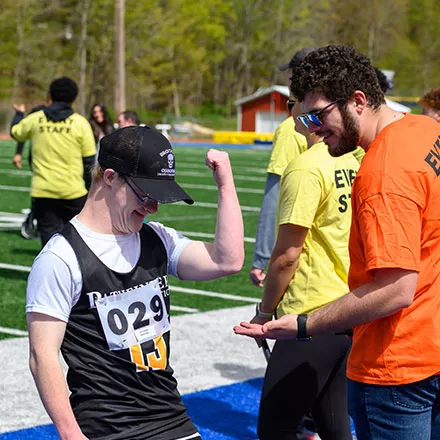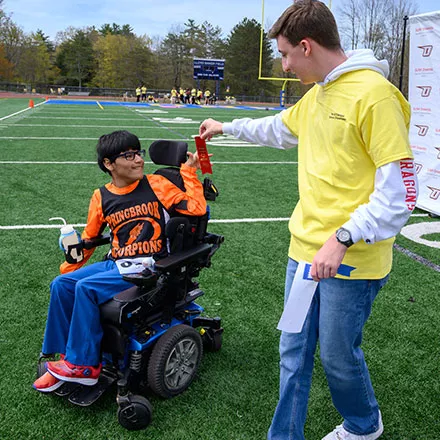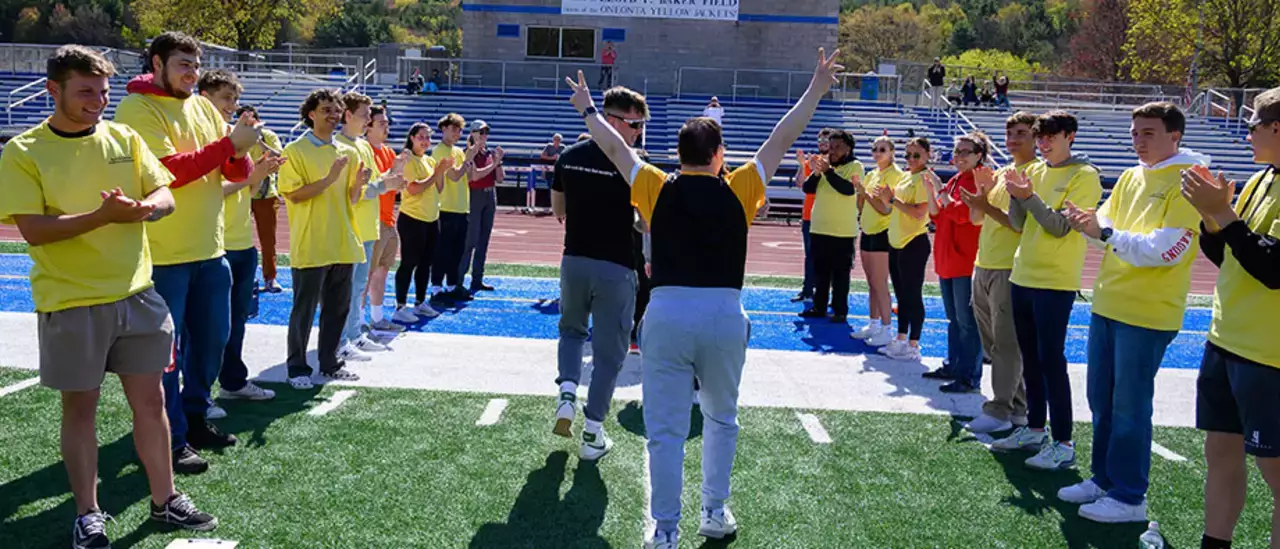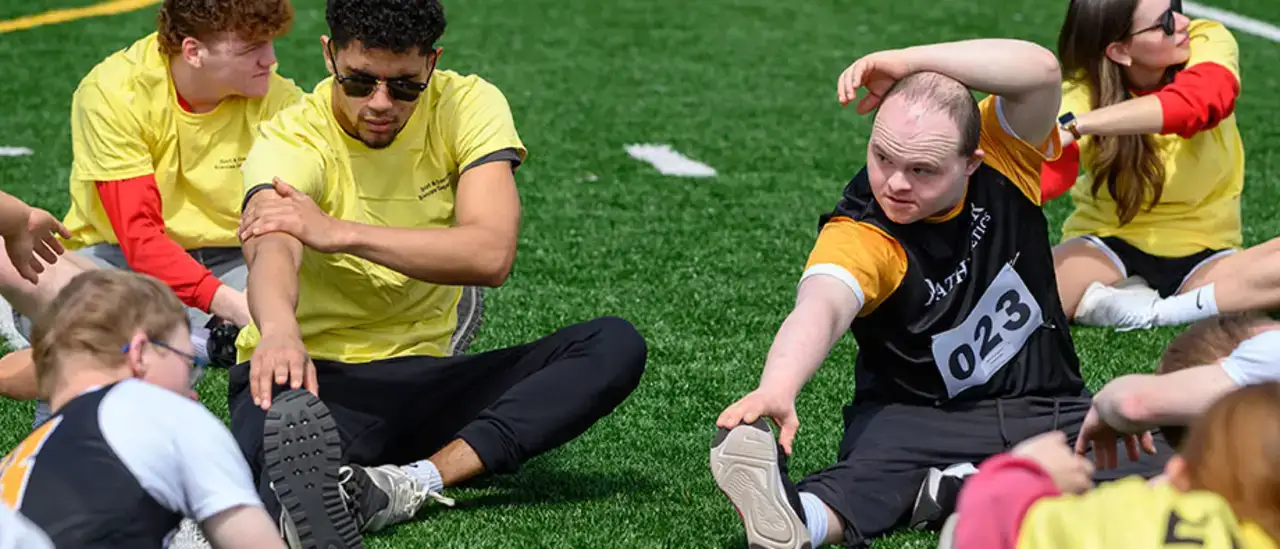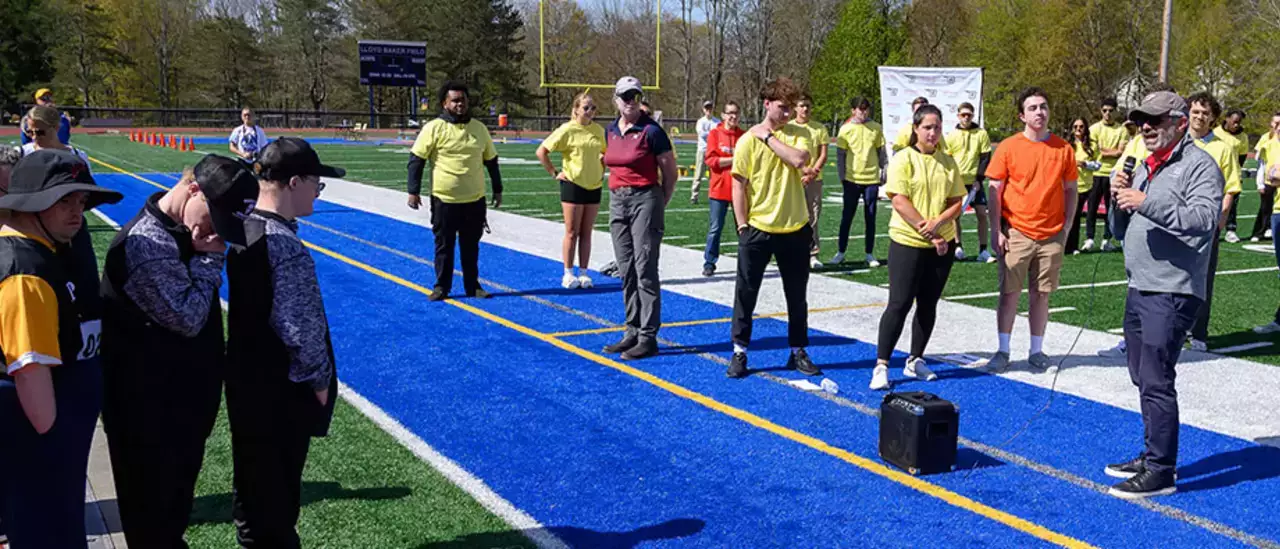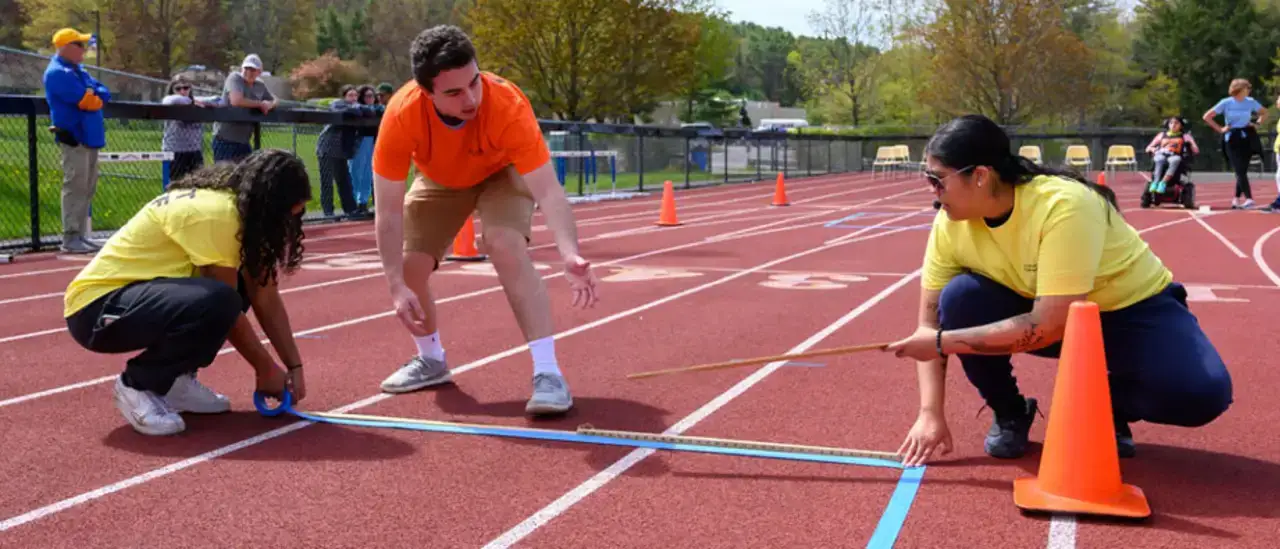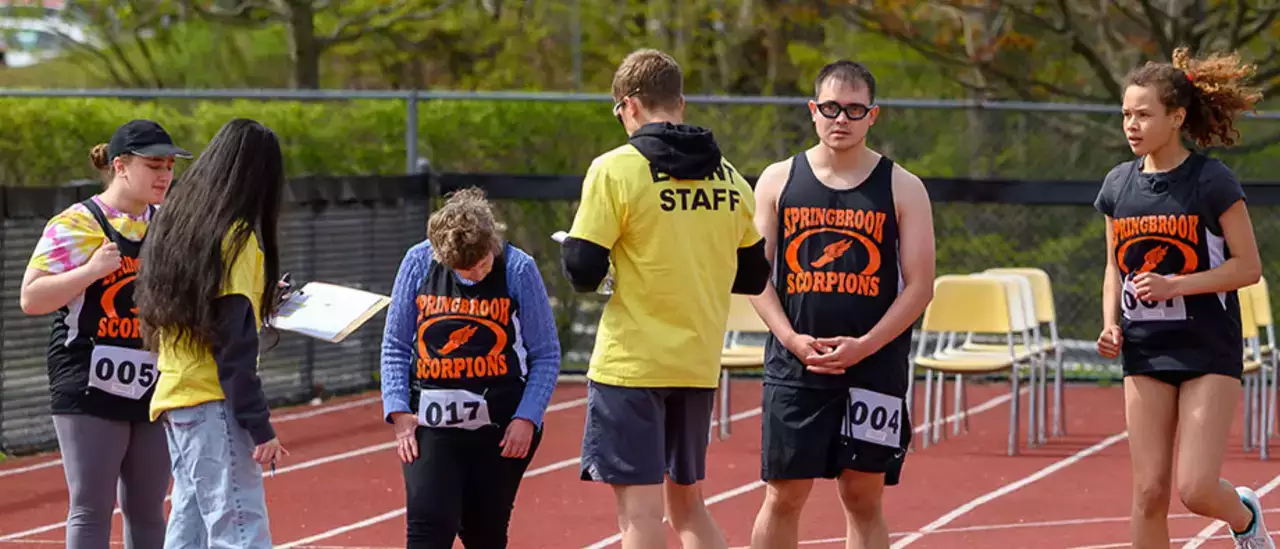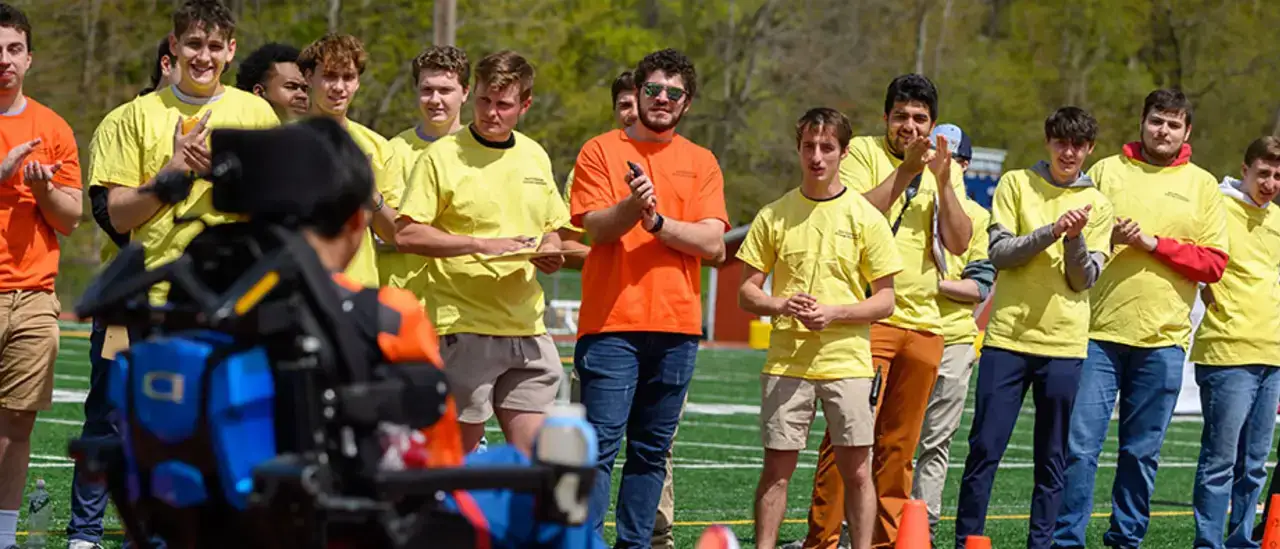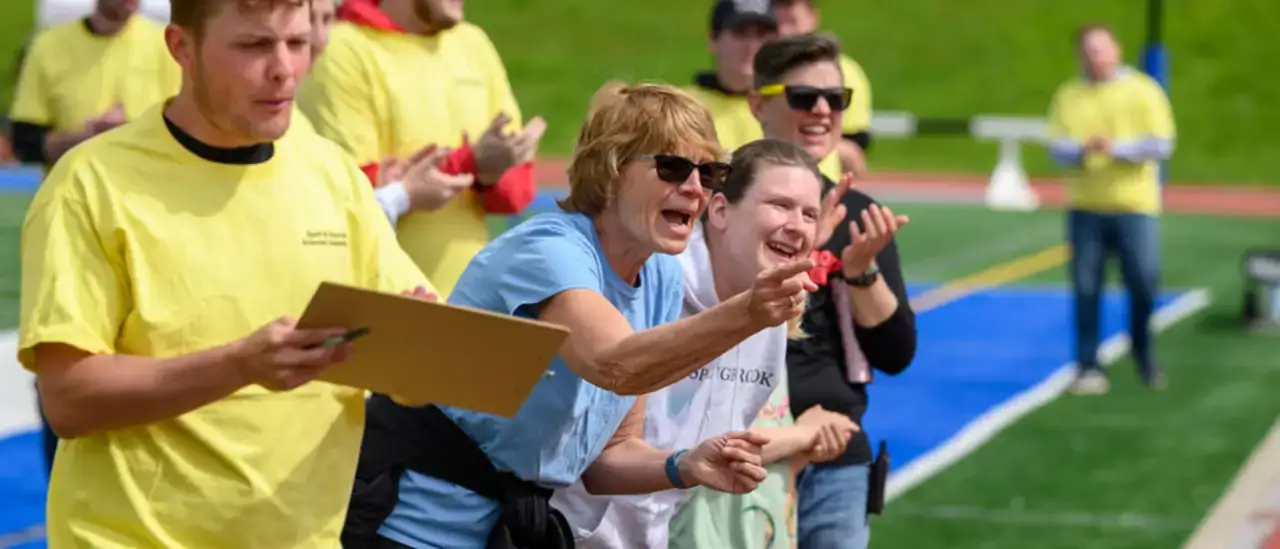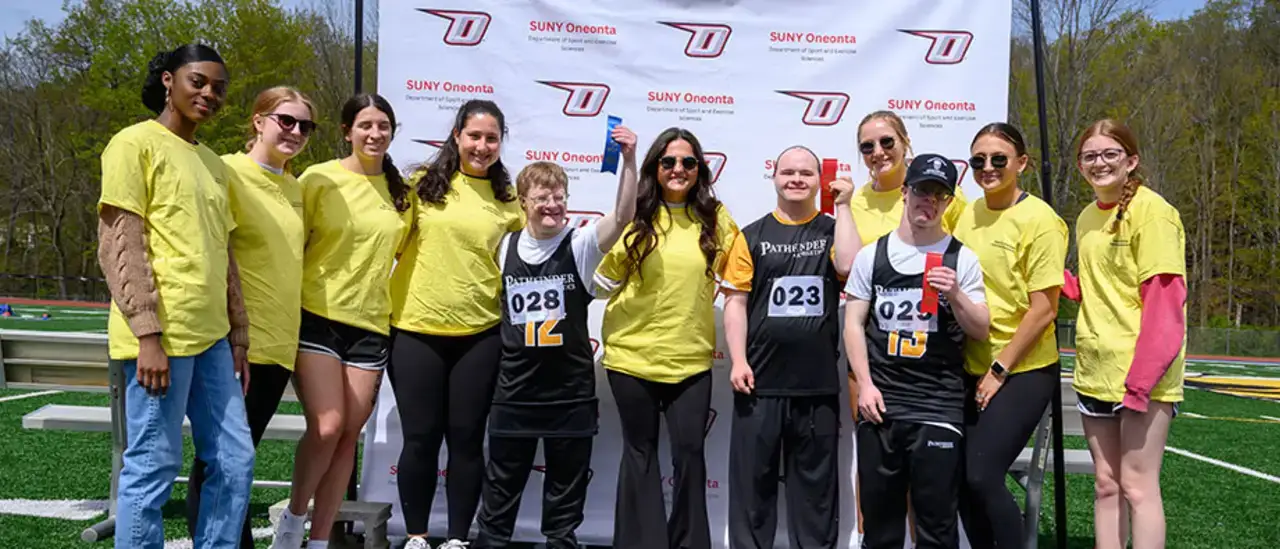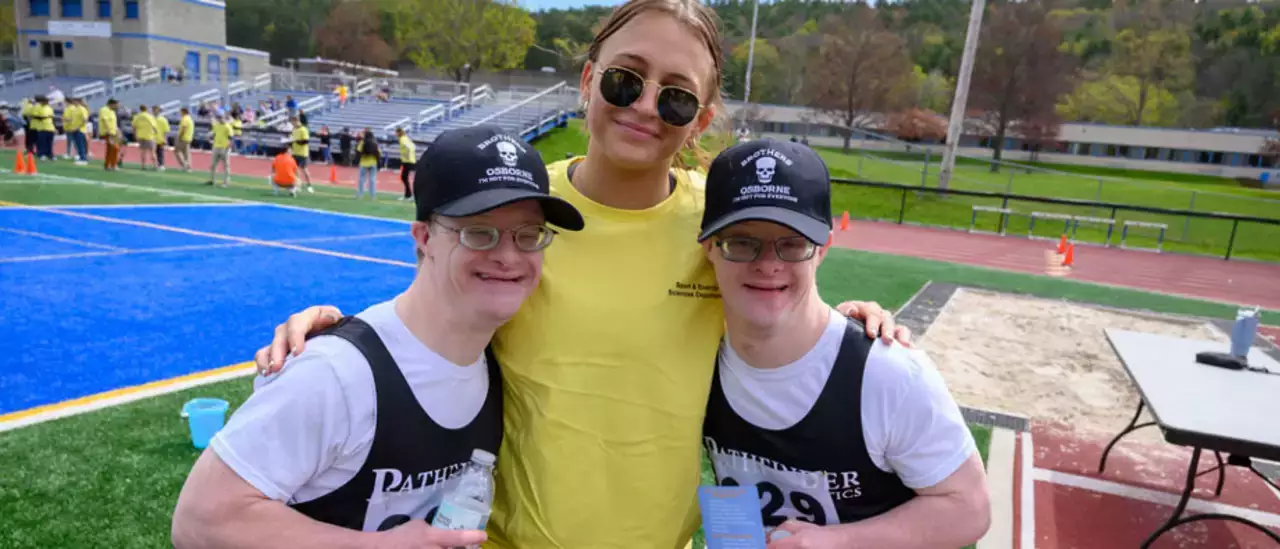Sixty-two SUNY Oneonta students and the Sport and Exercise Sciences department partnered with Special Olympics to host a regional track and field event at Oneonta High School on Sunday, May 7, 2023. The event allowed area individuals who have varying intellectual and adaptive disabilities, including clients at local organizations Springbrook and Pathfinder Village, to showcase their athletic ability in a competitive setting.
The day included an opening ceremony with remarks by City of Oneonta Mayor Mark Drnek and SUNY Oneonta President Alberto Cardelle. Sport and Exercise Sciences Lecturer Andrea Fallon-Korb organized the event with the help of two interns: David Dannibale and Michael Fasolino. The interns coordinated 60 student volunteers and worked with the 28 Special Olympic athletes and three adaptive athletes who participated in the day-long competition. The athletes ranged in age from 10 to 53.
“The smile on the athletes’ faces during the event created a moment I will always remember,” said Dannibale, a senior majoring in Sport Management. “It was amazing to see all of our hard work turn into such a great event for the athletes.”
A New SUNY Oneonta Tradition
This year was the second year that SUNY Oneonta students and the Department of Sport and Exercise Sciences volunteered to coordinate the Special Olympics Track and Field event. To be eligible to participate in Special Olympics, athletes must be at least 8 years old and identified by an agency or professional as having one of the following conditions: intellectual disabilities, cognitive delays as measured by formal assessment, or significant learning or vocational problems due to cognitive delay that requires or have required specially designed instruction.
“My expectations were blown out of the water once we finished,” said Fasolino, a senior studying Sport Management. “So many different people came up to the event leaders to congratulate us on how great the event was. One individual told us that we did a great job expanding upon our event from last year.”
Putting Education into Practice
In addition to running the track meet, student volunteers organized an obstacle course and outdoor activities. Volunteers from an exercise science course taught by Assistant Professor of Sport and Exercise Science Katie Griffes hosted pre- and post-competition workshops and education sessions.
Workshop volunteers educated the athletes on the importance of several athletic principles, including pre-competition stretching, hydration, mobility and agility training, yoga, and mindfulness and breathing exercises.
Each workshop combined information with entertainment, allowing athletes and volunteers to rotate between stations. “Our initial intention was to focus on our own booths, but because we’re all so close in our majors, we helped with each other’s workshops throughout the day,” said Exercise Science major Sarah Faulisi.
“Volunteering for the Special Olympics allowed our students to understand and appreciate sport inclusion at a deeper level,” said Dr. Griffes. “This event provided students with a chance to give back to their community, to make sure we are creating space for everyone to be included and benefit from sport participation, and see the impact their time, energy and efforts can have on others.”
